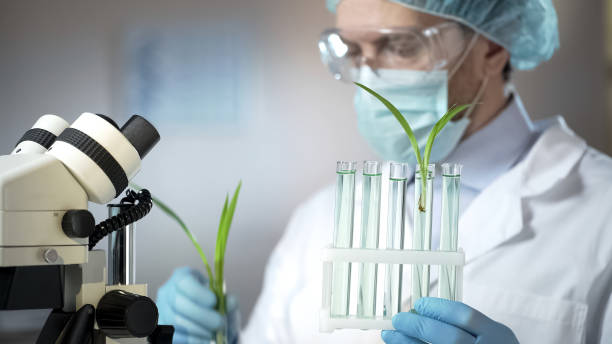Biocentrism says that biology, not physics, is the main science of the universe. It means life and thinking are what started everything, and the material comes later. Some people argue that Biocentrism is not reliable after talking about it for a long time.
Is Biocentrism Debunked
People wonder if Biocentrism is proven wrong. While it is an interesting way to see the universe, scientists are not buying it. The theory needs better real-life data and tests to be more trustworthy. Also, its understanding of physics is not quite right, which makes it less believable.
The idea of Biocentrism and what happens after we die
This theory, which means “life centre” in Greek, is pretty big. It talks about physics, biology, thinking, the brain, and AI. Think about a piece of grass. When you look, your brain sees green.
What if a brain doctor could check where that idea shows up and make it look red or yellow? Lanza says our brain sees everything as feelings. The world we see is made by being aware. The way time and space work is not exactly how we feel it. Science thinks time and space always keep going. Lanza calls them “just tools of our mind.” He thinks death “cannot really happen in the way we think.”
Newtonian physics says energy does not vanish; it just transforms. Even after we pass away, the energy in our brain changes. However, our senses show that something has ended. Where does this energy go? In a never-ending universe, can there be death? If not, is living forever inside or outside time and space? Dr. Lanza is not a new expert. He works at the Astellas Institute for Regenerative Medicine and is a big shot in biotech.
He looks into using stem cells to treat illnesses. Before this, he studied cells and made copies of animals and humans. Lanza also teaches at Wake Forest University School of Medicine. Tiny particles can be in many states at the same time.
What Is Biocentrism Theory
Nowadays, we focus more on biology than on physics compared to the past. Scientists look into life and its impacts. Biocentrism comes from trying to explain the universe from a biological perspective. Studying the common features of the universe that link physics and biology led to Biocentrism. It talks about these two areas together.
Biocentrism comes from Greek words: ‘bios’ means life, and ‘kentron’ means center. Biocentrism says that our thoughts shape the universe. Even after thinking for a long time about how the universe started, scientists still haven’t made much progress, except for the Big Bang.
However, experts think the Big Bang doesn’t explain life; it was just one of many things that made the planet. Biocentrism is more about nature than humans or the universe. It believes that nature is the base of everything and all species are equal, with humans not being the most important.
Is Biocentrism Trustworthy
Is Robert Lanza’s Biocentrism believable? Not every physicist thinks so. Here is the scoop. Time and space can be confusing, especially if we think about them too hard. One scientist says our awareness makes the universe. Biocentrism says our thoughts create time and space. However, lots of physicists do not agree. Keep reading to find out why some scientists do not buy into Biocentrism.
Is Biocentrism a Science Thing
Biocentrism is connected to quantum physics. People who support it talk about how watching things can change tiny particles. However, many scientists think these rules do not work for big things or the universe. Biocentrism is more popular when we talk about the environment. Thinking that all life is connected fits with ideas about nature. Looking at the universe from a biocentric view can help us value different kinds of life and keep the environment balanced.
People argue that Biocentrism is more like a philosophy or a science idea, and it is kind of complicated. Some try to link its philosophy with scientific ideas. Biocentrism says our awareness makes the world. Philosophers talk about what awareness is, but some smart people study the brain and how it might connect to the universe.
To be seen as a real science idea, Biocentrism needs proof that life affects the universe. Maybe we need to study physics, biology, and philosophy all together. Even if not everyone agrees with it scientifically, Biocentrism has made us think more about life and the universe.
Understanding Why Some Do not Like Biocentrism
Even though more people support ethical and environmental solutions, some criticize Biocentrism.
Here are common criticisms
Anthropocentrism Required: One big problem with Biocentrism is that it puts all living things at the center of ethical thinking. Critics say humans are anthropocentric, meaning they think human interests are more important, especially in conflicts.
Uneven Treatment of Living Things: People also criticize Biocentrism for not having a consistent way to deal with different living things. Those against Biocentrism say it is wrong to treat all living things the same, whether they are smart, conscious, feel pain or experience pleasure. They argue that our morals tell us to treat animals and other things that we do not feel or think differently from plants.
Not Very Practical: Some people think a biocentric way of looking at ethics is too idealistic and not likely to happen. They say Biocentrism does not consider the real challenges of life, like the need for resources, and not all living things can get along. Critics argue that sometimes humans have to put their needs first, especially when they clash with non-human needs.
Ignoring People’s Wishes and Needs: Those against Biocentrism say it pays too much attention to non-human species and does not care enough about what people want and need. They say Biocentrism does not think about how environmental rules can affect humans and that sometimes people have to choose between what they want and what is good for other living things.
No Proof: Lastly, some critics say that Biocentrism does not have enough proof and is not backed by evidence. They argue that Biocentrism relies too much on personal values and beliefs instead of solid facts. Critics say this makes it hard to check if biocentric ideas are true or to create practical plans based on these ideas in the field of medicine.
Conclusion
Biocentrism puts value on all living things and their rights. Some people like it for being an ethical and environmental solution, but others criticize it. Critics say Biocentrism does not make sense, has contradictions, and does not consider what humans need. Supporters of Biocentrism argue that it helps save ecosystems and diverse life and brings a moral and ethical way of dealing with environmental problems.
People May Also Ask
What is the issue with Biocentrism?
Many think Biocentrism asks too much from people. It wants us to avoid harming living beings and not mess with the lives of others, which seems like a big request.
Can biocentrism work?
Most scientists do not like the idea because it lacks real proof; some even call it speculative. One problem is figuring out if the concept of “observer time” is real. Another issue is that some say it is impossible to prove Biocentrism wrong.
What does Biocentrism claim?
Biocentrists say all species, including humans, are similar. They argue that we should not ignore the well-being of some living things over others. So, we should care about the good of all living things because they all have value.
What are the rules of Biocentrism?
Simply put, Biocentrism is about treating all living things the same way. It says human lives are not more important than any other living thing, and all living things should be equally considered in ethical and moral decisions.


















